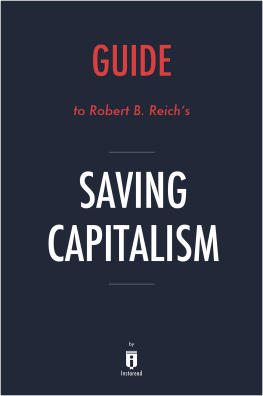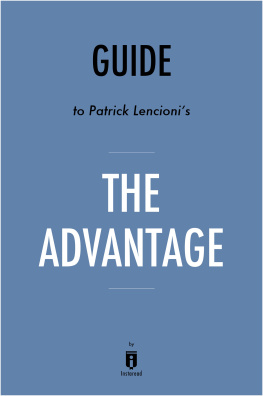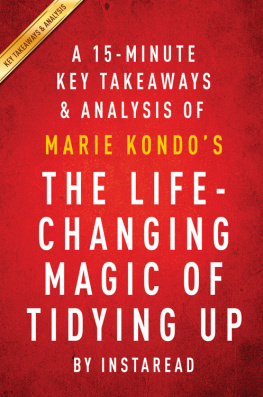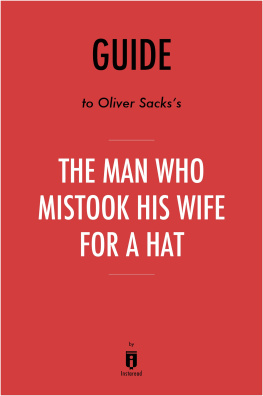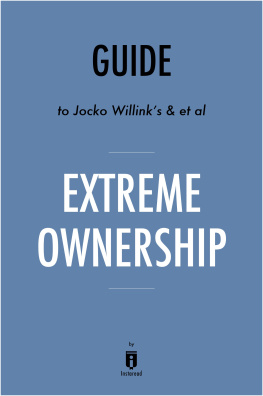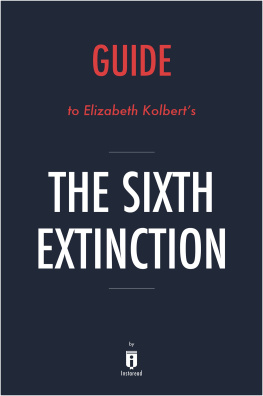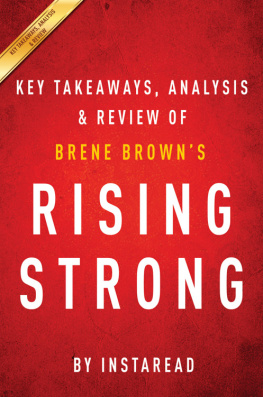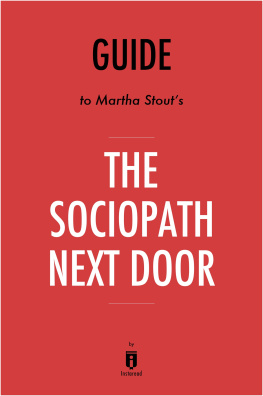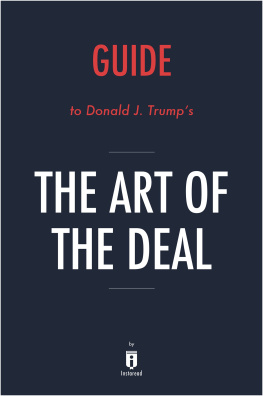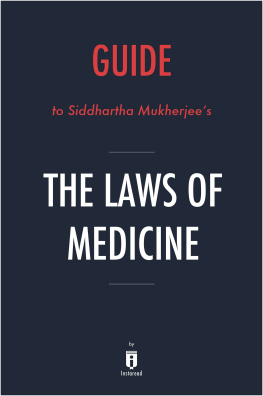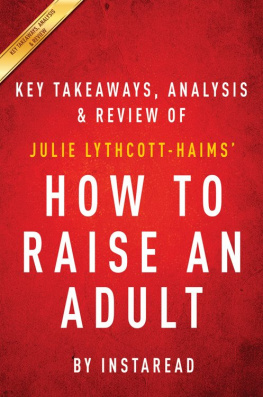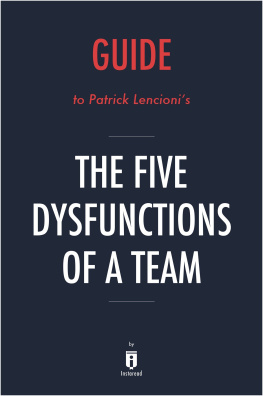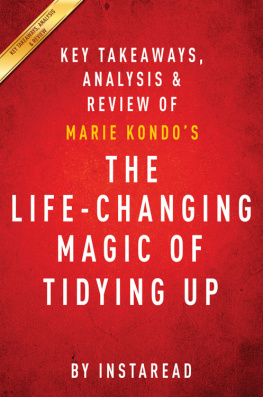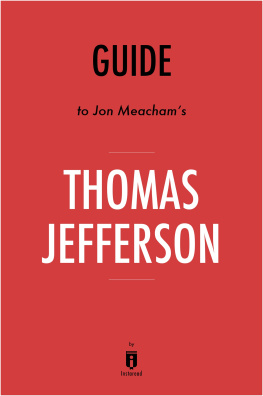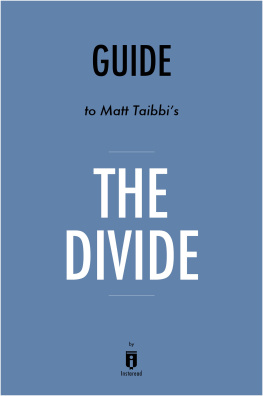Instaread - Saving Capitalism: For the Many, Not the Few by Robert B. Reich Key Takeaways, Analysis & Review
Here you can read online Instaread - Saving Capitalism: For the Many, Not the Few by Robert B. Reich Key Takeaways, Analysis & Review full text of the book (entire story) in english for free. Download pdf and epub, get meaning, cover and reviews about this ebook. year: 2015, publisher: iDreamBooks Inc, genre: Politics. Description of the work, (preface) as well as reviews are available. Best literature library LitArk.com created for fans of good reading and offers a wide selection of genres:
Romance novel
Science fiction
Adventure
Detective
Science
History
Home and family
Prose
Art
Politics
Computer
Non-fiction
Religion
Business
Children
Humor
Choose a favorite category and find really read worthwhile books. Enjoy immersion in the world of imagination, feel the emotions of the characters or learn something new for yourself, make an fascinating discovery.
Saving Capitalism: For the Many, Not the Few by Robert B. Reich Key Takeaways, Analysis & Review: summary, description and annotation
We offer to read an annotation, description, summary or preface (depends on what the author of the book "Saving Capitalism: For the Many, Not the Few by Robert B. Reich Key Takeaways, Analysis & Review" wrote himself). If you haven't found the necessary information about the book — write in the comments, we will try to find it.
Inside this Instaread of Saving Capitalism:
Overview of the book
Important People
Key Takeaways
Analysis of Key Takeaways
Saving Capitalism: For the Many, Not the Few by Robert B. Reich Key Takeaways, Analysis & Review — read online for free the complete book (whole text) full work
Below is the text of the book, divided by pages. System saving the place of the last page read, allows you to conveniently read the book "Saving Capitalism: For the Many, Not the Few by Robert B. Reich Key Takeaways, Analysis & Review" online for free, without having to search again every time where you left off. Put a bookmark, and you can go to the page where you finished reading at any time.
Font size:
Interval:
Bookmark:
Guide to
Robert B. Reichs
Saving Capitalism
For the Many, Not the Few
by
Instaread
Please Note
This is a companion to the original book.
Copyright 2015 by Instaread. All rights reserved worldwide. No part of this publication may be reproduced or transmitted in any form without the prior written consent of the publisher.
Limit of Liability/Disclaimer of Warranty: The publisher and author make no representations or warranties with respect to the accuracy or completeness of these contents and disclaim all warranties such as warranties of fitness for a particular purpose. The author or publisher is not liable for any damages whatsoever. The fact that an individual or organization is referred to in this document as a citation or source of information does not imply that the author or publisher endorses the information that the individual or organization provided. This concise companion is unofficial and is not authorized, approved, licensed, or endorsed by the original books author or publisher.
Table of Contents
Saving Capitalism: For the Many, Not the Few by Robert B. Reich examines the intersection of economics and politics in order to make sense of income inequality and wealth disparity in the 21st century United States of America.
The free market has been used to mask the reality of how big money, such as Wall Street, large corporations, and wealthy individuals, manipulate the market to their benefit, distributing wealth upwards at the expense of US working and middle classes. The real choice is not between a mythical free market and a demonized big government, but between a market designed to enhance the wealth of a minority at the top and a market designed to benefit the majority of US citizens.
The current economic and political system is creating a growing divide in US society between moneyed interests who fix the rules and everyone else who suffers the consequences. This state of affairs is not only economically unsustainable, but also politically dangerous, a threat to the functioning of US democracy. The only way to alter the status quo is for the majority to become informed, organized, and motivated to act. The majority must regain influence over the rules of the market in order to counteract the power of moneyed interests and reestablish an economy of widespread prosperity. It is not a matter of having more or less government, but of deciding who the government is really for and organizing the market accordingly.
Robert Reich: Robert Reich is a political and economic theorist and professor at the University of California, Berkeley. He served in the administrations of Presidents Ford, Carter, and Clinton.
John Maynard Keynes: An English economist born in 1883, Keynes is considered one of the most influential economists of the 20th century and the founder of modern macroeconomics. His school of thought, which challenged the tenets of neoclassical economics, is known as Keynesian economics.
Thomas Paine: One of Americas founding fathers, Paine was an activist, political philosopher, and revolutionary. He authored influential pamphlets, including Common Sense and Agrarian Justice.
- There is no such thing as the free market.
- It is no coincidence that those who praise the free market are the moneyed interests who benefit most from this system.
- Economic and political power are deeply connected. As moneyed interests gain dominance over the economy, they increase their influence over government, which in turn allows them to continue growing their wealth and entrenching their economic power.
- The influence of the wealthy on the economy and politics undermines the trust on which capitalism depends. Lack of trust further damages the political and economic system as people become cynical, avoid reasonable financial risks, and start cheating in order to get by.
- The notion that people earn what they are worth is a fallacy as it disregards the political institutions that define the market and determine worth. It also encourages people to think there is nothing they can do to improve their situation.
- The increasing power and influence of Americas upper class has come at the expense of the declining power of the working and middle classes. The main problem is not economic, but political.
- The growing divide in US society is not between Republicans and Democrats, but between the establishment and everyone else, the wealthy and the struggling majority. Ordinary people must establish a countervailing power that enables this majority to reconfigure the market.
- A countervailing power should not only reorganize the market to distribute income more evenly, but it must also develop market rules to counteract the trends of globalization and technological innovation that tend to benefit the one percenters and cost the lower classes their jobs.
There is no such thing as the free market.
Analysis
The free market is a myth that masks the reality of how the rules of the economic game are fixed and distracts attention away from the possibility of reorganizing the economy in a way that works for the majority of people. The major economic debate between Republicans and Democrats tends to be about how much the government should interfere in the workings of the market. Framed this way, the debate is already deeply deceiving. It positions the government as an unnatural, problematic entity distorting a system of naturally operating forces. But the free market does not exist without a government that creates and enforces the rules by which it operates. In fact, there is no economic system, no economy period, without these rules.
The idea of a free market has also been historically described as laissez-faire economics, a French term meaning letting go. The idea originated in the Enlightenment thinking of the 18th century. Philosophers were preoccupied with the idea of nature and natural rights, which they saw as harmonious, just, and self-regulating. For this reason, they sought to create systems that did away with artificial constraints and returned to the spontaneity of the natural order [1]. This thinking has a distinctly moral bent to it. Nature is by definition virtuous and right. Anything that alters it is damaging. Laissez-faire imagines a kind of perfect world, an Eden of economic activity in which the market imitates the harmonious, self-regulating order of the natural world. Adam Smith, an English philosopher and economist, was one of the major thinkers in this tradition [2]. For him, a laissez-faire system freed the market from constraining laws, restored order, and activated the potential for growth.
It is no coincidence that those who praise the free market are the moneyed interests who benefit most from this system.
Analysis
Since there is no such thing as an economy without rules, the free market really allows certain interests to establish a certain set of rules by which they profit. It is not a deregulated economy so much as a re-regulated one, with laws that allow Wall Street to speculate, for instance, on risky and lucrative bets, or that allow banks to push mortgages on people who cannot afford them. These rules obviously enhance the income and wealth of a tiny fraction of the US population, the so-called one percenters. Naturally, they have no inclination to introduce a different set of rules that would rein in the activity that makes their economic power possible.
There is enormous rhetorical deception at play in the way the term free market is thrown around. It plays to deeply held beliefs in the US about freedom itself. Those who continue to praise the free market and demonize big government are effectively interested in keeping the majority of the people in the dark about what these terms really mean. The ignorance of the majority works in favor of the wealthy minority who are able to hide their real intentions behind this simplistic insistence on freedom.
Next pageFont size:
Interval:
Bookmark:
Similar books «Saving Capitalism: For the Many, Not the Few by Robert B. Reich Key Takeaways, Analysis & Review»
Look at similar books to Saving Capitalism: For the Many, Not the Few by Robert B. Reich Key Takeaways, Analysis & Review. We have selected literature similar in name and meaning in the hope of providing readers with more options to find new, interesting, not yet read works.
Discussion, reviews of the book Saving Capitalism: For the Many, Not the Few by Robert B. Reich Key Takeaways, Analysis & Review and just readers' own opinions. Leave your comments, write what you think about the work, its meaning or the main characters. Specify what exactly you liked and what you didn't like, and why you think so.

